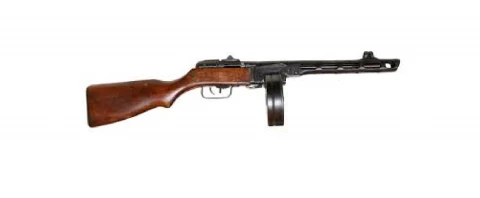Bushmaster XM-10 Standard vs TNW PPSh-41
Put rifles head to head to compare caliber and more.
|
$941.20
|
vs |
$1418.00
|
| Rifles | Bushmaster XM-10 Standard | TNW PPSh-41 |
|---|---|---|
| Summary | ||
| Rating | ||
| Rank | ||
| Length | 33.25"-37.25" | |
| Action | Semi-Automatic | Semi-Automatic |
| Caliber | .308 Winchester | 7.62x39mm Soviet |
| Capacity | 20+1 | |
| Finish | Black | Black |
| Barrel Length | 10.6 | |
| Sights | Iron Sights | |
| Gun Type | Rifle | |
| Details | ||
| Brand | Bushmaster | TNW Firearms |
| Reviews | See 4 Reviews | See 1 Review |
| Prices | ||
| MSRP | $915.20 | $1,400.00 |
| Used Price | $640.64 | $980.00 |
| Sale Price | $823.68 | $1,260.00 |
Rifles Descriptions
Bushmaster XM-10 Standard
Stock :Black 6-Position Collapsible Metal Finish :Black Muzzle :A2 Flash Hider Receiver Material :Aluminum Sights :None (Optics Ready) Barrel Description :Chrome Moly Steel Chrome-Lined Twist :1:10"
TNW PPSh-41
Semi-auto replica of famous Georgi Semenovich Shpagin rifle that defend StaligradA Brief History of the PPSh-41 (Pistolet-Pulemyot Shpagina-1941) During WWII, Russia found itself needing a rapid fire Sub Machinegun (SMG) to counter the pitfalls of what is now known as urban warfare. The Russian leadership wanted a less expensive alternative to the Pistolet-Pulemyot Degtyaryova (PPD-40), which was a close copy of the German Bergman MP-18. Enter Georgi Semenovich Shpagin. Born in 1897 in the village of Klyuchnikovo to a peasant family, he was called into service around 1916 for the Russian Army and ultimately found his niche as an armorer in an infantry regiment. During the Soviet-Finnish War of 1939-40, the Finns had considerable battlefield advantage over Shpagin's Comrades due to their employment of an established machine gun. The Soviet High Command gave immediate order to find a weapon to counter and ultimately turn the tide for the Mother Land. In early 1940, Shpagin delivered a prototype that was easily manufactured and based on a readily available military cartridge - the Tokarov 7.62x25. After extensive testing the Shpagin prototype stomped the competition and in July of 1941 production began in the face of the rapidly advancing German Army.



